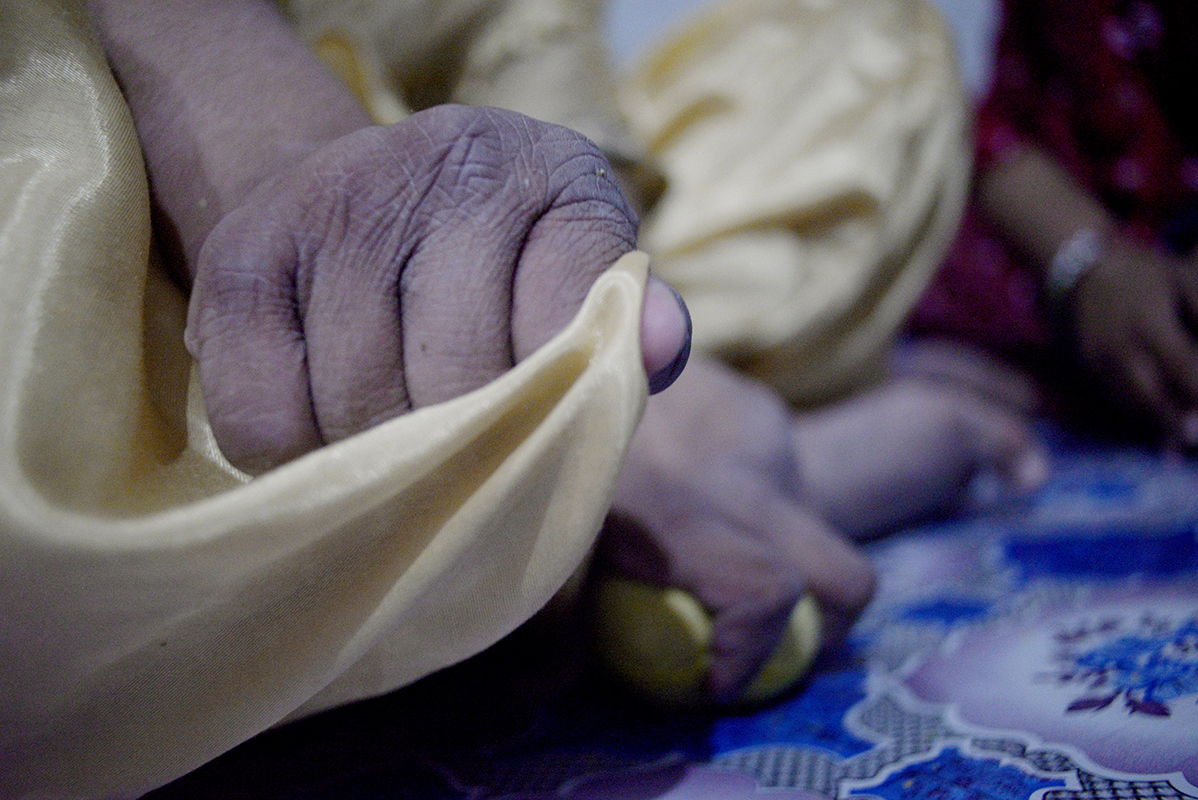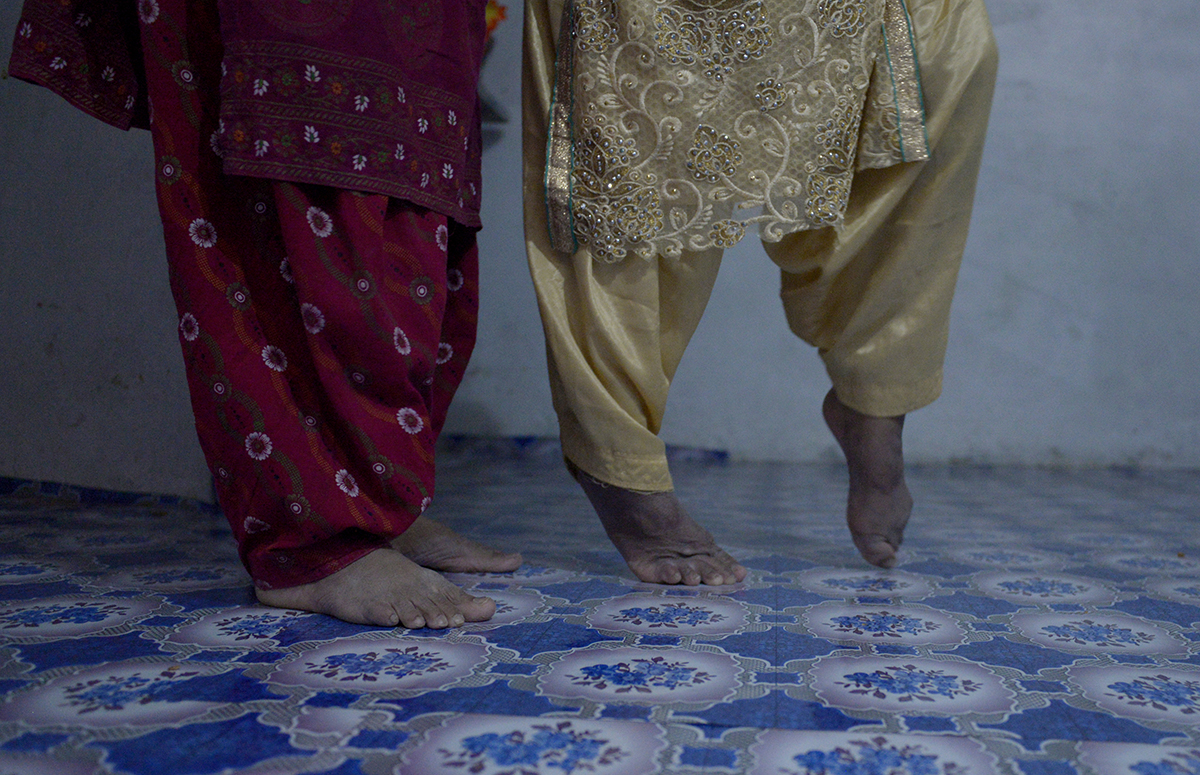This week we are delighted to share stories and photographs from Bhopal sent to us by professional photographer and writer Rohit Jain. Rohit visited Bhopal for a month in October-November of 2020 to undertake a project documenting the effects of Covid-19 on gas survivors, funded by the Pulitzer Centre for Crisis Reporting. During his time there, he visited a number of the children who receive regular therapy at the Chingari Children’s clinic to meet them and document how Covid-19 and the clinic’s closure have effected them during the lockdown.
Today we are sharing his stories about 3 children: Alfez, Umair, and Isha. We will be sharing more of his stories and incredible pictures over the coming weeks, so do continue to watch this space.
A huge thank you to Rohit for sharing these with us, and to the Pulitzer Centre for funding his work.
All pictures by Rohit Jain.
Alfez
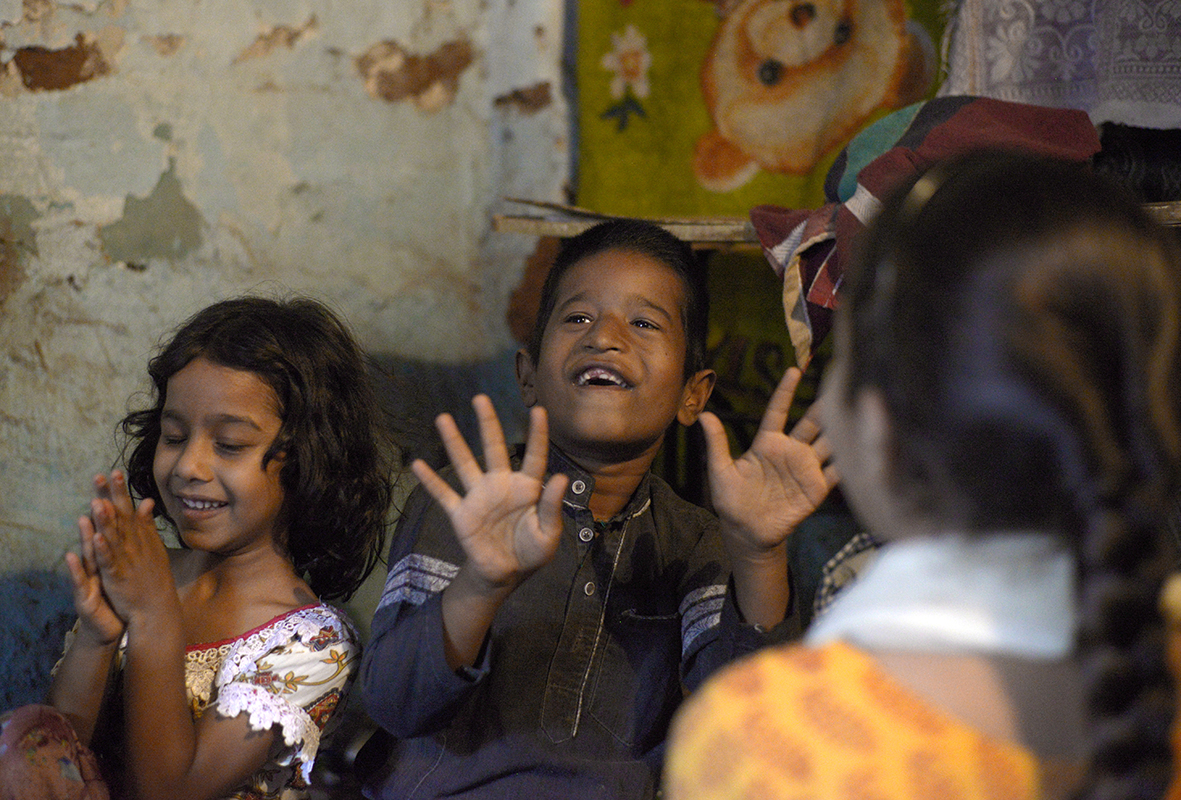
10-year-old Alfez has problems with his mobility and physical development. He mostly lives a difficult and lonely life but has cousins and other siblings with whom he plays and laughs occasionally. They understand him well. Whenever Alfez is angry, he hits his cousins and siblings but they understand Alfez is angry and they step aside to give him some time. His elder cousin Falak loves him a lot and Alfez also likes to play with her.
When Alfez was less than a year old, his mother Tarannum took him to a doctor. The doctor asked his mother, “Is there anybody in your family gas affected (by the Bhopal Gas disaster of 1984)?” Alfez’s mother said, “I am not gas affected, but I don’t know about Alfez’s father and grandparents.”
Alfez father was one and half years old when MIC gas leaked from the Union Carbide factory and the whole of his family inhaled the poisonous gas.
The doctor said to Alfez’s mother, “Alfez’s medical condition is congenital.”
As Alfez’s mother said, “Covid-19 lockdown interrupted Alfez’s regular therapy (which includes speech, occupational and special education at Chingari Rehabilitation Centre). His behaviour has changed. With regular therapy, Alfez had started to speak a bit. Nowadays, he excretes and urinates in his pant. When I ask him, have you urinated in the pant? He gets angry and shouts at me in his broken voice “‘जाओ, जाओ…” (“go, go…”) and gets frightens.” He often wishes to be left alone.
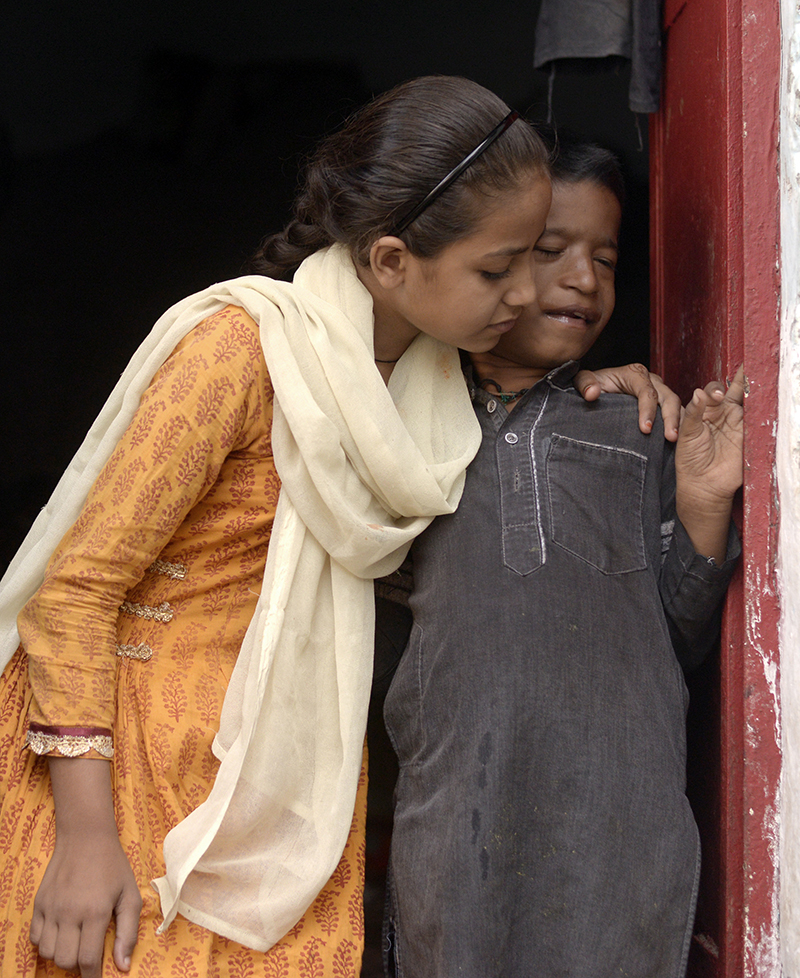
However, Chingari trust visited him weekly for therapy during lockdown.
Alfez likes Dal (curry made from lentils) and rice, mostly, but he hardly chews his food. He never eats chocolate, bananas, apples, etc.
Alfez father doesn’t talk to him much. He doesn’t like when Alfez gets angry or cries. His mother keeps him away from his father, as much as possible, even though they have only a single room house with a common lawn shared by other families. Alfez mother said “I take care of him, mostly. I understand his language and what his needs are.” His father has hardly had any income since the Covid lockdown.
Everyday, his mother prays and says “बस ऐसे बच्चों की दबाई बन जाए, अल्लाह पाक की दुआ से” (“may such children have a medical cure by the grace of Allah).”
Umair
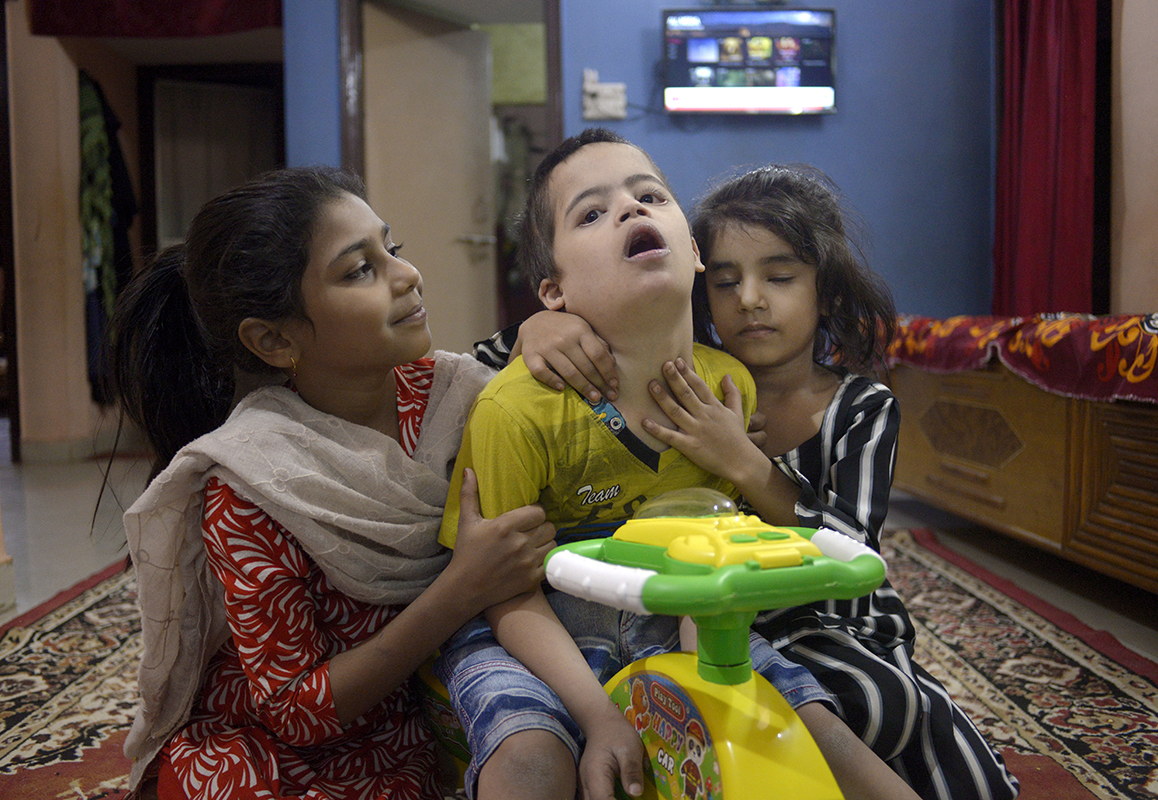
Umair has Downs Syndrome.
He is loved by everyone in his family. He would ask everyone in his family for ice cream. He wouldn’t relax until he gets ice cream. His sister and cousins ask him to kiss them; he would lick their cheeks instead of kissing them! That’s how they play together.
He has a tendency to hit anyone or pinch hard, randomly. Sometimes, he hits so hard that it hurts his siblings or grandparents. Such behaviour has increased since his regular therapy has been interrupted due to the Covid-19 lockdown, his mother said. His attention span has also reduced a lot. He has become more stubborn and aggravated.
Apart from ice cream, Umair likes to have tea and biscuits. He would soak the biscuits completely in his tea! No one can disturb him when he is having his tea. He looks so adorable when he has tea. In between tea, he would play around, jump around and he pinches someone passing by.
His grandfather laughs and complains of Umair while pampering him “nowadays he hits and pinches me so bad”.
You will love him more when he watches TV. He would lie-down on his bed, keeping one leg over the other, then sit in a horse position his occupational therapist taught him and jump on the bed.
His mother said “Earlier he wouldn’t eat anything except milk. He would be lain down on bed all day looking dull. Since regular therapy for the last five years he has started to eat by himself and plays a lot that we have to scold him sometimes to sit silently”. She smiled.
Umair’s father was four years old when he was exposed to the MIC gas that leaked from Union Carbide’s pesticide plant. His grandparents and his ‘bua’ (father’s sister), who was just one and half months old, were rushed to a safer place but his grandparents had severe complications when the gas affected their eyes and they vomited a lot. His grandfather still has problem with his eyes. While there could be other reasons for Umair’s medical conditions, there us ongoing research into the genotoxic and long-term effects of MIC gas.
Isha
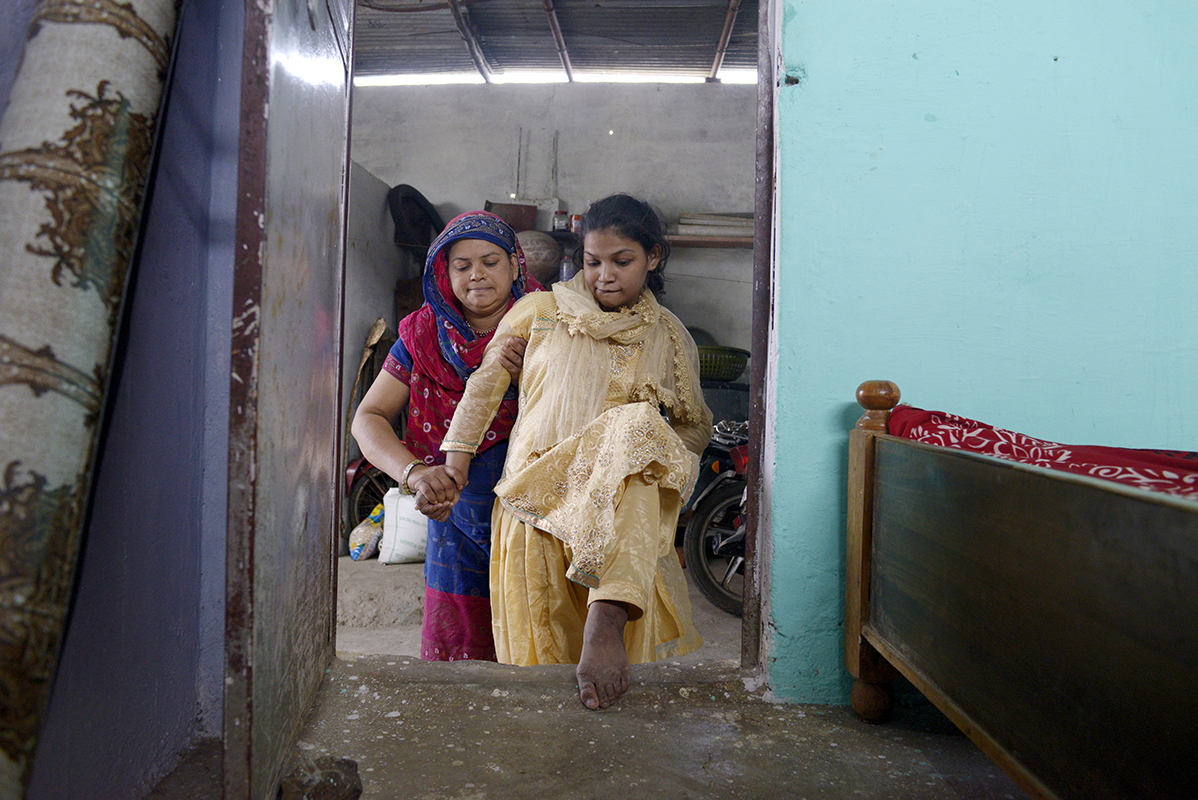
18-year-old Isha has found her way to use a mobile phone. She operates it with her toe.
“I like to browse videos and share among my friends and relatives,” Isha said. She played her favourite song for me and she asked my favourite song.
Isha has Cerebral Palsy.
She wants to take selfie from her phone but she can’t hold the phone. She is unable to hold anything with her hands.
Isha’s mother was exposed to MIC gas during the disaster of 1984 and both of her parents consumed contaminated groundwater for many years. Both inhalation of MIC gas and drinking of contaminated water have been shown to cause long-term adverse health defects, including conditions that can affect an individual’s genetics.
Due to the Covid-19 lockdown her regular therapy has been interrupted, resulting in her muscles tightening and causing hyperextension more than they did before. She is walking on her toes again, instead of walking on her heels as she was helped to in therapy.
She has a weekly home visit with a therapist from the Chingari Trust.
Her mother says “regular therapy helps my daughter to thrive better”.
Isha’s smile and her calmness against all odds are so inspiring.
